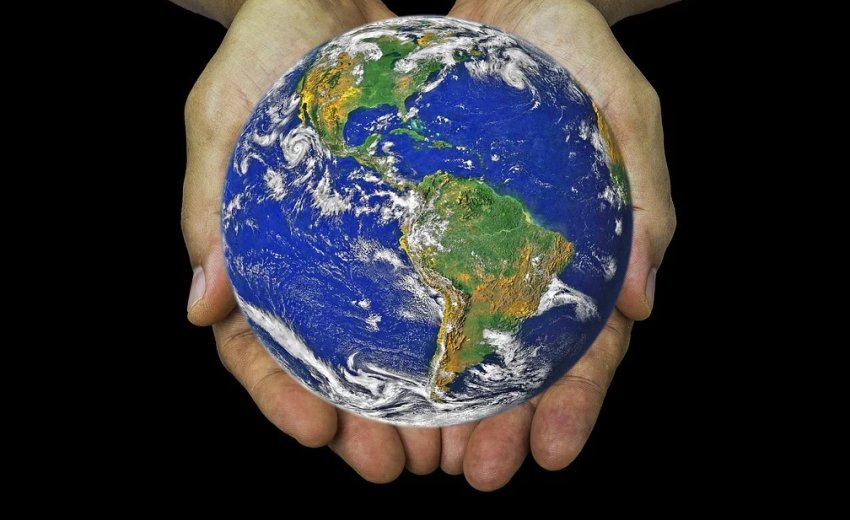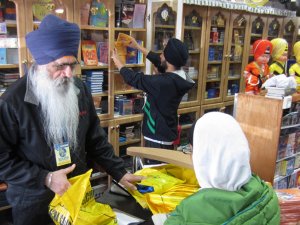A New York-based publication called NEWSDAY runs a yearly special issue on Interfaith relations in which spokespersons – often clergy – of major faiths like Judaism, Christianity Islam, Hinduism and Sikhi, among others, are invited to explore very briefly their holy days or a specific practice or belief. All five or six pieces appear on one page once a year, I have luckily drawn the assignment over the years to provide many such synopses on Sikhs and Sikhi.
In a special issue on April 26. 2020, NEWSDAY highlighted opinions of faith-leaders in 250-words apiece and included my brief contribution on Sikhs and Sikhism as well. This essay which you are now reading is an expanded version of my brief piece on this pandemic that has roiled life all over the globe. Over the past couple of months many Sikhs have written extensive essays, especially on the Internet, about this event even though details about its devastations in India remain largely unexplored. A most notable calamity was the passing away of the Raagi Nirmal Singh as a consequence.
The coronavirus surfaced just months ago, like a nuclear disaster, an existential threat to life on Earth. Now we see some hope on the horizon, but intermixed mostly with a darker visage. Today the world seems closed. It will surely reawaken but when and in what form remains a mystery.
The first thoughts and reflexes that grab us are automatic and often simplistic: Has the Creator abandoned his Creation including all human life? Talk to people of any faith, including Sikhi. Surely many believe that people have forgotten God and His retribution is the well-deserved consequence of the pandemic now visiting humanity.
But I wonder! Wouldn’t that be a vengeful Creator punishing all for the possible sins of some? How best to understand and deal with what torments us? As expected, we quickly jump to prayers for forgiveness. Prayers might calm and focus our mind, which is good, but not necessarily prevent further suffering. Ergo, I would not suggest that we blame the whim of God. The Creator should not be the scapegoat for any disaster that crosses our path. The Covid-19 is not the first disaster in human history, nor is it the last. Let us also eschew the path of beating up on ourselves and our sinful ways. These are signs of desperation that steer us into the path of self-created failure.
What next? Let a prayerful mind anchor itself so that we do not stray from the path of sanity. Prayer can settle the mind and that is central to a productive path, so that it is shaped by commonsense, reason and information with science and technology as necessary.
So, heed the experts, mavens and scientists, not the charlatans. Respect their knowledge and let them guide us. Again, prayers will shape the mind. Without the mind at peace knowledge remains unbridled and may often lead us astray. Our focus has to remain on the common good that is the goal.
Covid-19 challenges us with a most modern and unusual weapon, posing a challenge to human scientific talent and achievements. Human potential is and will prove its acumen but it will take a little time and considerable challenge to human talents.
As a Sikh, I lean on the Sikh spiritual underpinnings of Guru Nanak’s teachings. The Guru Granth pointedly reminds us that pleasure and pain are two robes in our wardrobe. Each of us dons one or the other in turn. Such is life – “Sukh dukh doi dar kapray pehray jaaye manukh, p.149.”
This hints at the obvious that the two items in the wardrobe, sorrow and joy — Sukh and Dukh — are not only cyclical but transitory as all life is, and we are all renewed by our mortality. Life is thus a transitory, temporary circumstance that we are experiencing – by just passing through. Our onus then is to make the most of it during our brief passing through.
Hence, we need to cultivate the state of mind that accommodates both pain and pleasure, and anticipates the change of seasons with patience, contentment and equanimity. Each moment heralds the new and the old, the anticipated as well as the unexpected, some more welcome than others to our mortal existence. The variety is the richness of life and the cure for life’s mendacity. Accept it and work with it.
Guru Granth also pointedly reminds us that even the most undesirable horrendous event may be the needed positive agent of change –“Dukh daroo sukh roag bhaya ja sukh taam na hoyee,” p. 469. Forget not this apparent idea that absolutely does not contravene the first teaching but enhances it to relate to a full life inherent in the metaphor with the two robes in our closet. And I conclude with another powerful metaphor from Gurbani that tells us to continue working towards the common good – Aapan hathi aapay he kaaj savariyae Guru Granth p. 474.
So, don’t diminish the Creator to the level of our own insecurities, and don’t fall for the spin masters whether religious or political charlatans. Keep in mind that coronavirus is not the first such mega-disaster in human history nor is it the last and remember This, too, shall pass.





